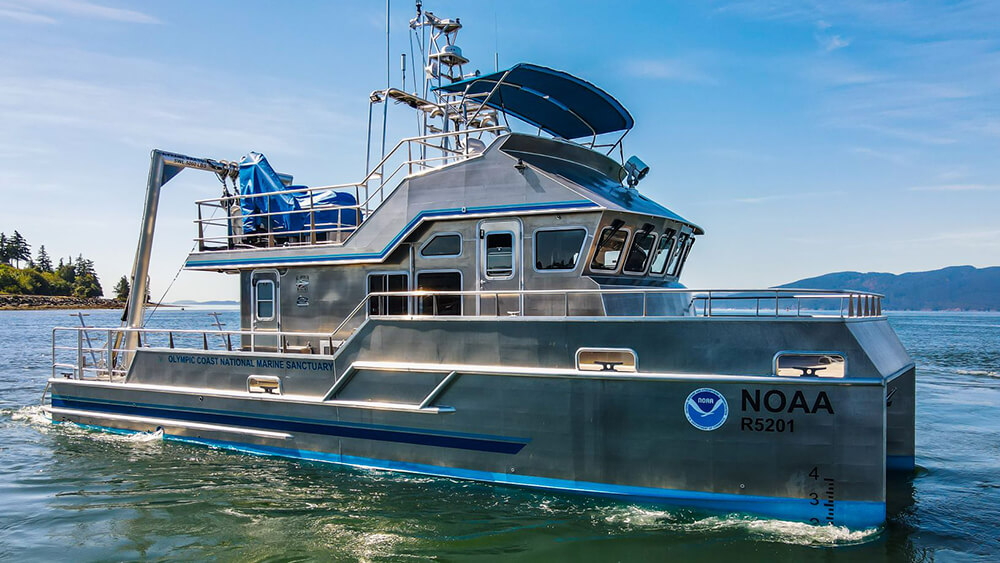Studying Southern Resident Killer Whales in Olympic Coast National Marine Sanctuary
September 5, 2025

Did you know that one of the Pacific Northwest's most iconic marine mammals—the endangered Southern Resident killer whale—is shifting its summer home waters? Once most often seen in the Salish Sea around the San Juan Islands, these whales have increasingly been spotted further west near the mouth of the Strait of Juan de Fuca in Olympic Coast National Marine Sanctuary.
Beginning September 5, NOAA Fisheries' Northwest Fisheries Science Center and NOAA's Office of National Marine Sanctuaries will launch a collaborative science survey to better understand this shift. Researchers will work aboard the sanctuary's research vessel, R/V Storm Petrel—the only research vessel specifically dedicated to Washington's Pacific Coast. The team will spend 10 days gathering new data using non-invasive methods in these coastal waters.

What We're Studying
Scientists want to answer three key questions:
- What are the whales eating here? Using advanced tools like environmental DNA (eDNA), researchers will analyze genetic material from seawater samples to detect fish species and gain clues about the whales' prey.
- Are the whales facing new risks? Their coastal range potentially overlaps with busy shipping lanes, so scientists are studying whether vessel noise and traffic increase potential hazards.
- How do other predators play a role? Northern Resident killer whales also hunt in these waters, and researchers are watching to see how interactions between the two groups may affect Southern Residents.
Why It Matters
Southern Resident killer whales are a NOAA Fisheries Species in the Spotlight—a group of nine species most at risk of extinction in the near future. With fewer than 80 individuals left, every piece of knowledge matters. Understanding their changing habitat and food sources helps NOAA strengthen conservation efforts while also supporting the region's commercial and recreational fisheries and maritime economy. Findings from this work will also help NOAA manages salmon stocks that both the whales and our fisheries depend on, and support partnerships with industry to reduce vessel impacts while maintaining a strong maritime economy.
By combining sanctuary expertise, fisheries science, and innovative technologies like eDNA, NOAA is modernizing how we study marine ecosystems and make informed management decisions that benefit both people and wildlife.

Stay Tuned
Over the next 10 days, our scientists will be hard at work in the field, collecting data and exploring the dynamic waters of Olympic Coast National Marine Sanctuary. We'll be sharing more about their progress and findings on our websites and social media channels—so keep an eye out for updates from NOAA Fisheries, NOAA Sanctuaries, and Olympic Coast.
Together, we're working to better understand and support Southern Resident killer whales, ensuring that future generations can continue to experience the wonder of these extraordinary animals in the wild.
Rachel Plunkett is the content manager and senior writer/editor for NOAA's Office of National Marine Sanctuaries

